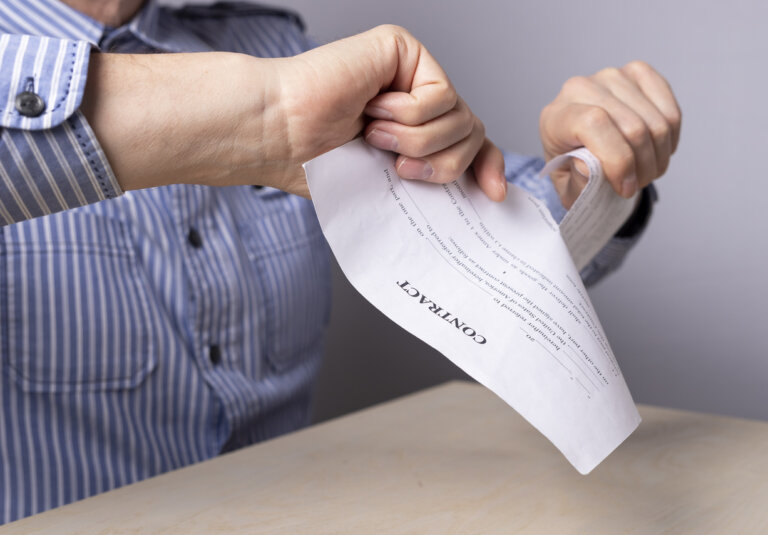Contracts are a part of everyday life, whether we’re aware of them or not. From business agreements to personal transactions, they help keep our dealings clear and fair. But when one side doesn’t hold up their end of the bargain, things can quickly get complicated. A breach of contract can cause confusion, frustration, and financial strain. Understanding what happens when a contract is broken and how to address it is key to protecting your rights and moving forward with confidence.
Common Types of Breaches in Florida
When it comes to contract disputes, not all breaches are the same. In Florida, there are different types of breaches that can affect how a case is handled and the remedies available. Understanding these differences can help you determine the best course of action.
Here are the most common types of contract breaches:
- Material breach: This occurs when one party fails to fulfill a major obligation, significantly harming the other party. For example, if a contractor doesn’t complete a project, it’s considered a material breach.
- Minor breach: Also known as a partial breach, this happens when a less significant term is violated, but the contract as a whole remains intact.
- Anticipatory breach: If one party indicates that they won’t fulfill their contractual duties before the deadline, this is an anticipatory breach. The non-breaching party can take legal action before the actual breach happens.
Each of these breaches impacts your legal rights differently.
How to Prove a Breach of Contract
Proving a breach of contract in Florida requires more than simply showing that the other party didn’t do what they were supposed to. You must demonstrate certain legal elements for your claim to succeed. Here are the four key elements you need to prove:
- Existence of a valid contract: You must show that a valid contract exists between you and the other party. This can be written or verbal, as long as it contains clear terms.
- Your performance: You must prove that you performed your obligations under the contract or were willing and able to do so.
- The other party’s failure to perform: You’ll need to show that the other party failed to meet their contractual duties.
- Resulting damages: Finally, you must demonstrate that the breach caused you financial harm or other losses.
Collecting the right evidence and clearly establishing these elements is critical to building a strong case.
Remedies for a Breach of Contract
If someone breaches a contract, several remedies are available to help make things right. In Florida, the remedy you pursue will depend on the specifics of the breach and what you’re hoping to achieve. Here are some common remedies for breach of contract:
- Compensatory damages: These are meant to cover the losses you suffered as a result of the breach, putting you in the position you would have been in if the contract had been fulfilled.
- Specific performance: In cases where money isn’t enough, the court may order the breaching party to carry out their obligations under the contract.
- Liquidated damages: If the contract specifies a set amount of damages for a breach, this can be enforced in court.
- Rescission: The contract is canceled, and both parties are restored to their original positions before the agreement.
Choosing the right remedy depends on your goals and the nature of the breach.
When Should You Take Legal Action?
Deciding when to take legal action for a breach of contract depends on the severity of the breach and your goals. Not every breach requires a lawsuit—sometimes, negotiation or mediation can resolve the issue more efficiently. However, if the breach has caused significant financial harm or the other party refuses to fulfill their obligations, legal action may be necessary. Keep in mind that Florida has a statute of limitations for breach of contract claims, so it’s important not to delay. If you’re unsure of your next steps, we can help evaluate your situation and guide you forward.
We’re Here to Help You Protect Your Rights
At Van Elswyk Law, we understand how frustrating a breach of contract can be. We’re here to help you explore your options and pursue the best possible outcome, whether that involves negotiating a resolution or taking legal action. If you’re dealing with a contract dispute and need guidance, contact us today to schedule a consultation and protect your rights.

